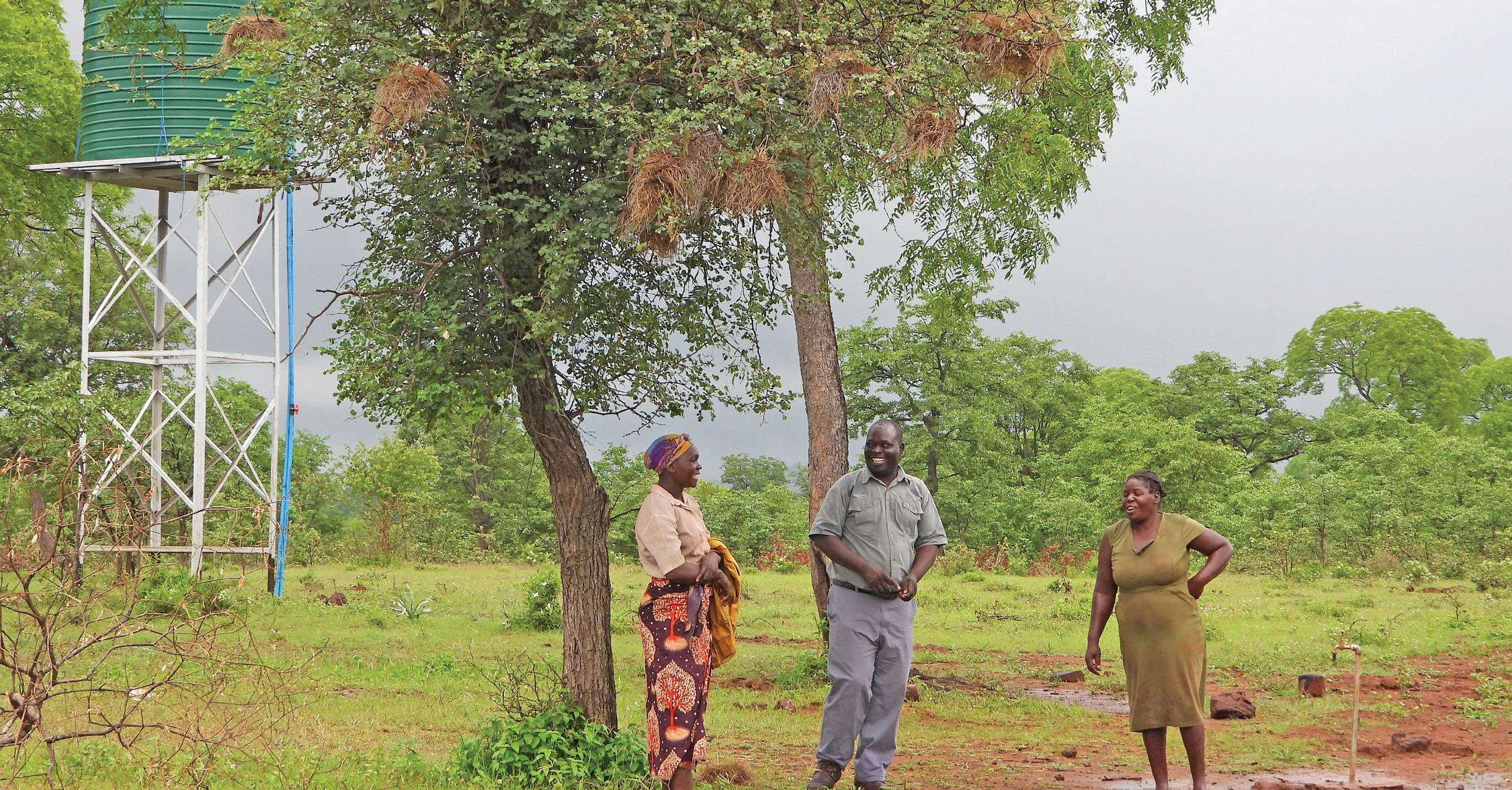
1 minute read
community water provision to enhance co-existence of wildlife and people in Hwange
One of Africa’s truly natural wildlife reserves, the Hwange National Park , is quite miraculously run.
The vast park—measuring 14,600 squarekilometres—is home to mega-fauna, including more than 45,000 elephants who drink large volumes of water daily. Yet not a single perennial river flows through or even skirts the park, so the area relies largely on groundwater pumped from boreholes for most of the year.
Advertisement
It is not only the wild animals that suffer from the great thirst that impacts this arid part of Zimbabwe; it also affects outlying communities who have had to scramble for the few water sources available, often running into contact with some dangerous wild animals like lions, elephants and buffalo.
Between 2017-2022, Zimbabwe estimates that 400 people died due to human-wildlife conflict as wildlife and people compete for food and water.
To avert the crisis and improve access to clean water, IFAW and ZimParks have, under the Water is Life project, set up solar- powered boreholes in Hwange and Tsholotsho districts.
“Three out of four boreholes are now operational, each installed with a 10,000 litre plastic tank, to provide access to clean water for domestic, agricultural and livestock needs to more than 1,200 villagers in Hwange and Tsholotsho,” said Simbarashe Chiseva, IFAW’s Community Engagement Officer.
“Beyond improving sanitation and hygiene, the Water Is Life project will significantly reduce incidences of human-wildlife conflict, particularly predation of cattle by lions,” he added.
Previously, villagers used to encroach into the forest reserves adjacent to Hwange National Park with their livestock in search of water, unknowingly attracting lions.
“IFAW-funded boreholes have improved access to clean water, reducing the burden on women and girls, who in the past had to spend more time searching for water,” said Matetsi Ward 1 Councilor Vulindlela Gasela Mhlanga.
“Our livestock will no longer have to go deep into the protected area for water and this will reduce attacks by wild animals,” he added.
The Water Is Life project includes plans to set up community nutritional gardens close to the borehole sites. Around 90 households in Kasibi and Breakfast villages will each get a portion for nutritional gardening activities, which will help the communities become food secure and resilient.
The potential for villagers in the target communities to improve their livelihoods from the solar-powered boreholes is endless.
Clean, safe water for villagers in Hwange district.
Solar-powered boreholes to mitigate human–wildlife conflict in Hwange.










